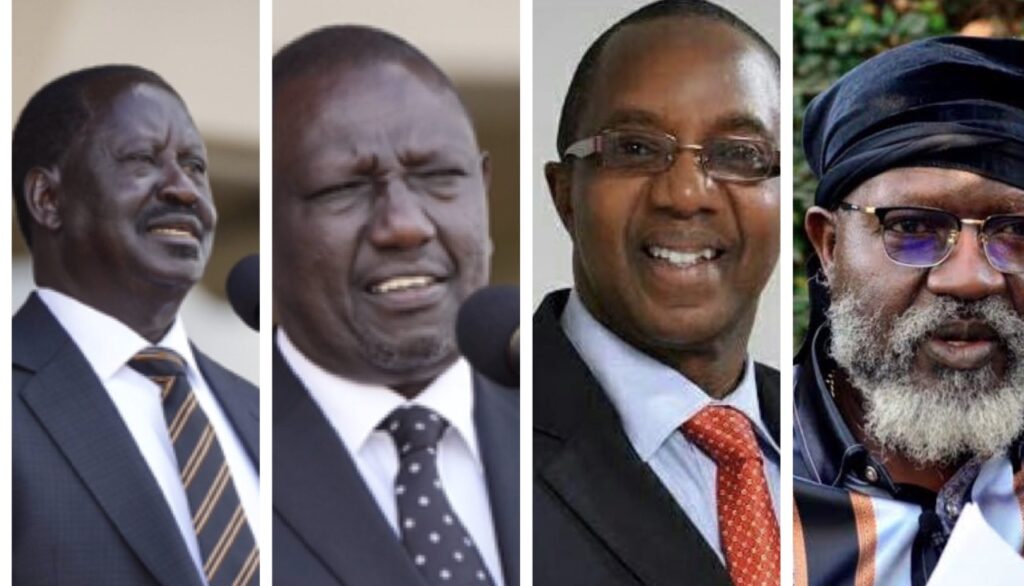Somalia and Kenya are East African neighbours whose relationship has been bumpy since independence. These neighbours that are historically, economically, and culturally interlinked have been embroiled in border disputes, petty skirmishes, and in some cases bloody massacres.
The citizens of both countries share a common ethnic heritage and their social and trade links have proven to be deep and enduring.
While thousands of Kenyans, particularly teachers and traders, work and live in Somalia, tens of thousands of Somalis likewise live in Kenya, including many university students who attend Kenyan colleges.
The reoccurring quarrel between the two countries tends to disrupt the lives of scores of ordinary citizens, and hinder the wider effort to stabilize Somalia, which will require continued involvement by Kenya (a key AMISOM troop contributor) and other neighbours.
The most recent dispute between Somalia and Kenya began in the late 2000s and has lingered till the present.
The dispute was about a shared maritime border; when Kenya tried to impose a border on Somalia that was similar to its own southern border with Tanzania.
According to history, at that time, Somalia was at war, so could not prevent Kenya from doing so.
Since then, Kenya has used the maritime area for its own benefit, but also has helped to monitor and secure the waters.
This disagreement seems strange because both countries have shared this border for more than 50 years. So How the two countries have not yet defined their territorial waters and associated boundaries is the question in the mind of everyone.
Somalia has argued that, rather than extending out along the line of latitude, the maritime boundary should be consistent with standard practice in international law and follow the direction of the land border.
The United Nations, UN high court’s ruling now gives Somalia more of this contested maritime zone, including oil blocks that Kenya claims.
According to the African Union Border Program, AUBP, borders are often a challenge throughout the world. only about one-third of the borders among the continent’s 54 nations had been formally demarcated by 2011.
The AU says many countries in Africa still have outmoded borders relying on rivers, tree lines or paths that can change over time.
While the AUBP maintains that clear borders reduce conflicts, more porous and informal boundaries have arguably kept the peace in nomadic and migratory areas. Demarcated borders need not be strictly controlled, but often are in practice.
The UN Convention on the Law of the Sea, UNCLOS, an international law since 1994, provides the authoritative rules on territorial waters, exclusive economic zones EEZs and continental shelves beyond EEZs.
Countries sometimes do reach agreements on their own, however, departing from the UNCLOS guidance. This was Kenya’s position, claiming that since 1979 Somalia had continuously “acquiesced” to Kenya’s preferred boundary, making this now legally the line.
Somali on the other hand, had no consistent decision-making authority during those years.
Beginning with the fall of President Mohamed Siad Barre’s military dictatorship in 1991, Somalia was a failed, contested state, only around 2012, arguably, did Somalia have a government capable of making such choices.
However, the most promising way to manage the risk of confrontation would be to talk to agree on a mutually acceptable approach to enforcing the judgment.
Qatar, which has good relations with both Kenya and Somalia has helped to mend fences between the two countries earlier in 2021 and has quietly offered to mediate.
Nairobi and Mogadishu should accept this offer and use any talks to establish mechanisms for further dialogue.
Although both sides have repeatedly promised to revive the Somalia-Kenya Joint Commission for Cooperation, a forum bringing together high-level officials from both sides to discuss bilateral ties, they have taken little action on this front. The two neighbour should restart this platform to regularly discuss their many shared interests and smooth over disputes.
Other Disputes
Aside from the Maritime border dispute, Kenya and Somalia have been having other issues that affect their relationship.
In February 2019, Kenya recalled its Ambassador after Mogadishu decided to auction oil and gas exploration blocks at the centre of their maritime rights dispute. The two countries temporarily revived ties in November of the same year.
Moreover, as their diplomatic relations worsened, Mogadishu completely severed ties with Nairobi in December 15, 2020.
Both countries are also feuding over parts of the Indian Ocean that is believed to be rich in oil and gas, and at present the maritime boundary dispute is being adjudicated before the World Court.
As both countries continue in their disputes, Somalia filed a case against Kenya in 2014 at the International Court of Justice, the United Nations highest court for disputes between states, was heard by the court in the Hague in March 2021.
However, Kenya did not participate in any of those hearings.
In May last year, Kenya and Somalia reached an agreement on the diplomatic stand-off between the two countries.
Somalia’s deputy information Minister, Abdurahman Yusuf, announced the resumption of Kenyan-Somali diplomatic relations, after Somalia severed official ties with Kenya in December 2020.
According to Mr Yusuf, the restored ties were based on non-interference, respect for the territorial integrity and sovereignty of the two countries, and the countries’ peaceful co-existence, acknowledging the role played by Qatar in mediating between them.
Kenya’s Ministry of Foreign Affairs took note of the announcement and statedt that Kenya looks forward to further normalise relations with Somalia especially with regard to trade, communication, transportation, people-to-people relations and cultural exchanges.
On July 15th this year, Kenya and Somalia agreed again to resume diplomatic and trade relations during a visit by Somali President Hassan Sheikh Mohamud to his counterpart Uhuru Kenyatta.
The two leaders signed a series of agreements designed to put years of tension behind them.
The agreements include the resumption of fish and khat -a flowering plant used as an appetite suppressant in the region trade.
Also, Kenya Airways will resume its route to the Somali capital, Mogadishu. The two countries will also ease visa restrictions and reopen common borders.
The two Presidents recommitted to the fight against terrorism, and to ensure success, they directed the security agencies of the two countries to coordinate their efforts in this fight to ensure the safety and protection of the citizens of both countries, while upscaling the fight against terrorism.
They agreed that both countries will collaborate with other regional and international actors to provide the much-needed humanitarian assistance to mitigate the effects of the current drought in the Horn of Africa region.
The move also ensures the advancement of their common security interests, although al-Shabab will remain a major threat to both countries.


